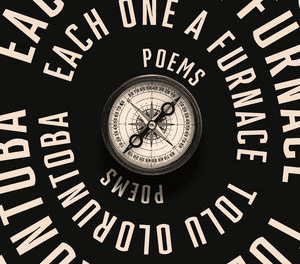Samantha Edmonds: When I offered to write a review of Jenny Offill’s novel Department of Speculation, what I really wanted to do was open up a forum to gush. It’s not every day I find a book that I don’t simply enjoy or even admire, but that moves something within me, as a reader, as a writer, as a human.
 I want to recommend this book to everyone I have ever known (and, indeed, in the weeks since I’ve read it, I very nearly already have). I want to reread and reread this book until I’ve memorized every line. I want to write it a love letter (you’re reading the result) and scrawl in the margins sappy pick-up lines reminiscent of Erin Hanson’s poems: Did you drink a cup of the universe? For there are stars within your soul.
I want to recommend this book to everyone I have ever known (and, indeed, in the weeks since I’ve read it, I very nearly already have). I want to reread and reread this book until I’ve memorized every line. I want to write it a love letter (you’re reading the result) and scrawl in the margins sappy pick-up lines reminiscent of Erin Hanson’s poems: Did you drink a cup of the universe? For there are stars within your soul.
What makes this book so out of this world? Well, traditional book-review formula maintains I include here a summary of the novel, roughly half the length of the review itself. This will prove hard to do.
Plot: A man and woman fall in love, marry. They have a child. The man has an affair. The woman tries to pick up the pieces of the broken marriage and paste them back together.
This is not what the book is about.
“Antelopes have 10x vision. . . . That means on a clear night, they can see the rings of Saturn.”
“Blue jays spend every Friday with the devil, the old lady at the park told me.”
“Three questions from my daughter: Why is there salt in the sea? Will you die before me? Do you know how many dogs George Washington had?”
“Don’t know. Yes. Please. 36.”
 These are just a few moments from Department of Speculation, a novel in fragments. It can be consumed in one sitting; there’s more white space than text on many of its pages. Perhaps this form is meant to reflect the character’s shattered mental state. Perhaps Offill just finds this mode of writing more invigorating and exciting. Perhaps it is meant to invoke something strange and true in the associative habit of human thoughts.
These are just a few moments from Department of Speculation, a novel in fragments. It can be consumed in one sitting; there’s more white space than text on many of its pages. Perhaps this form is meant to reflect the character’s shattered mental state. Perhaps Offill just finds this mode of writing more invigorating and exciting. Perhaps it is meant to invoke something strange and true in the associative habit of human thoughts.
A conversation between husband and wife. A fact about space and the universe. Something weird the child said.
A tickling in the brain.
Reader, figure it out.
All the answers are in there.
Where?
The white space.
An example: The narrator says, “So lately I’ve been having this recurring dream: In it, my husband breaks up with me at a party, saying, I’ll tell you later. Don’t pester me. But when I tell him this, he grows peevish. ‘We’re married, remember? Nobody’s breaking up with anybody.’”
And in the next paragraph or fragment: “‘I love autumn,’ she says. ‘Look at the beautiful autumn leaves. It feels like autumn today. Is autumn your favorite time of year?’ She stops walking and tugs on my sleeve. ‘Mummy! You are not noticing. I am using a new word. I say autumn now instead of fall.’”
Her daughter is using a new word to talk about something old, something familiar. Rather like the way that people say “divorce” once they’re married, instead of “breaking up.”
Do you feel that tickle in your brain? Like you almost get it? But then the fragment ends, the white space looms, and you are left staring at the page, trying to connect the pieces. Department of Speculation is a novel that demands reader participation.
In the tradition of Renata Adler’s Speedboat and David Markson’s Reader’s Block, Offill has written a book that recasts what it means to be a novel: It is a form that shouldn’t work, but does. She has taken pieces of a shattered life and of the incomprehensible universe and arranged them in a such a way that when the novel ends you are star-struck, your brief visit with its world not allowing you the time to understand the amazing things you have experienced, and your mind already begging for a chance to return to it.










